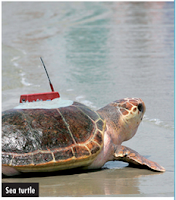 |
From the 1962 film version
of To Kill a Mockingbird |
What I read
In "To Kill a Mockingbird removed from Virginia schools for racist language," Danuta Kean reports on the controversy surrounding recent bans by some US school districts of classic works of modern English literature, with parents groups arguing that the racist, sexual or religious content disturbs their children, while free speech advocates strongly oppose such banning of upsetting books, arguing that they raise important issues for children to discuss (2016).
_______________________________________
My response
I agree completely with the free speech advocates who oppose banning books. I also agree that it is deeply offensive to see words like
nigger,
faggot (an extremely offensive term for gay men),
cunt (for women), and so on. But being offended, is not a good reason to keep people in ignorance of reality by censoring and banning. If the possibility of offending someone were a good enough reason to ban something, it's hard to see what would not be banned. I find much religion offensive, and religion, especially Christianity, did much actual harm to me and millions of other children by teaching us lies about homosexuality and about sex generally. So, if offensive content is a good reason to ban books or ideas, the Christian Bible, and the Jewish Bible, must be banned along with the Islamic Quran. But that is wrong. The better solution is to let the hate speech be spoken so that the false and immoral ideas can be proved false and immoral in healthy public debate, where the law protects everyone's right to have and to state their ideas.
In the meantime, children should not be denied great literature because their parents, or some other parents, are scared it will upset or corrupt them. I wonder: is it so bad to be upset by learning truths about human society? Humans are part of nature, and like the rest, we are often nasty, cruel and uncaring of others. We treat other species even worse as we cause them to suffer for short awful lives before we kill them so we can enjoy eating their flesh. I think the best way to avoid this is to learn how truly barbaric humans can be, and then we know what has to be fought against: sexism, racism, speciesism, anti-gay laws that do not, for example, allow same-sex marriage, and other prejudices are all morally wrong, but pretending they don't exist is not a healthy response and seems to me unlikely to make society better.
To Kill a Mockingbird did a lot to improve white awareness of racism in US society in the 1950s, and it still has much to offer today. To ban it because the author uses the right language is a serious mistake. And I rather enjoy reading the Bible - it has some great literature in it that I don't want to see banned. Shakespeare's
Romeo and Juliet? Well, yes I can see why parents don't want their young kids reading that exciting story of silly teenage love full of sex and violence, but Shakespeare teachers us something important about being human as Romeo throws away the old girl friend when he sees the much sexier Juliet, who is a ripe 13 years old!
The related problem with banning things is that it is deeply anti-democratic: to protect our own rights, we must protect the same rights of those who say things we hate.
_______________________________________










